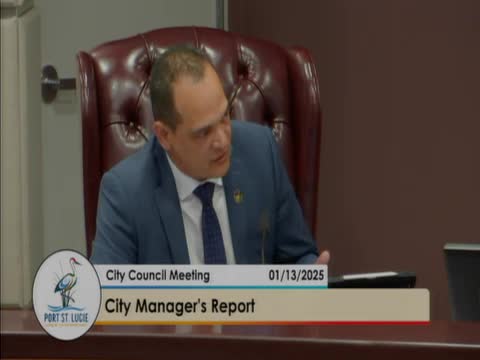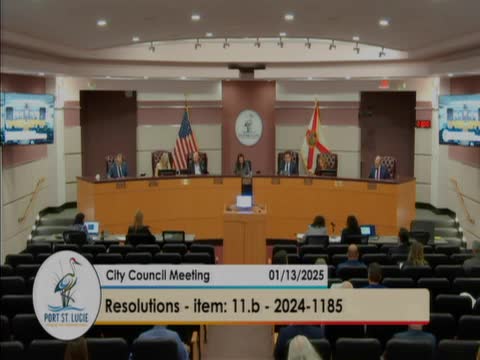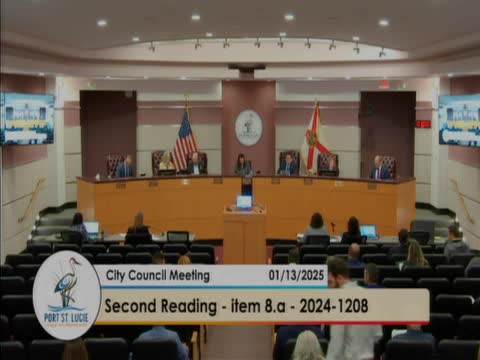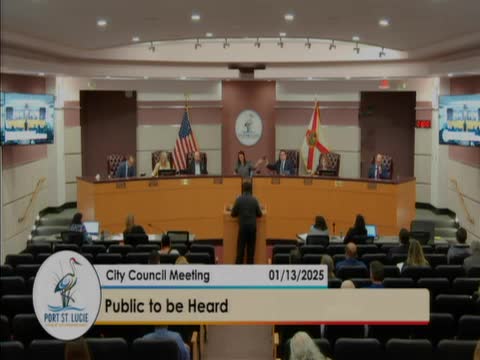Article not found
This article is no longer available. But don't worry—we've gathered other articles that discuss the same topic.

Council agrees to informal session on solid waste, Cameo site and Reptilis report; staff to hold 1-on-ones beforehand

Council approves 150-foot monopole in Southern Grove for Fire Station 20 cell coverage

Port St. Lucie council approves land-use changes, code updates and property acquisitions; multiple ordinances and resolutions pass Jan. 13

